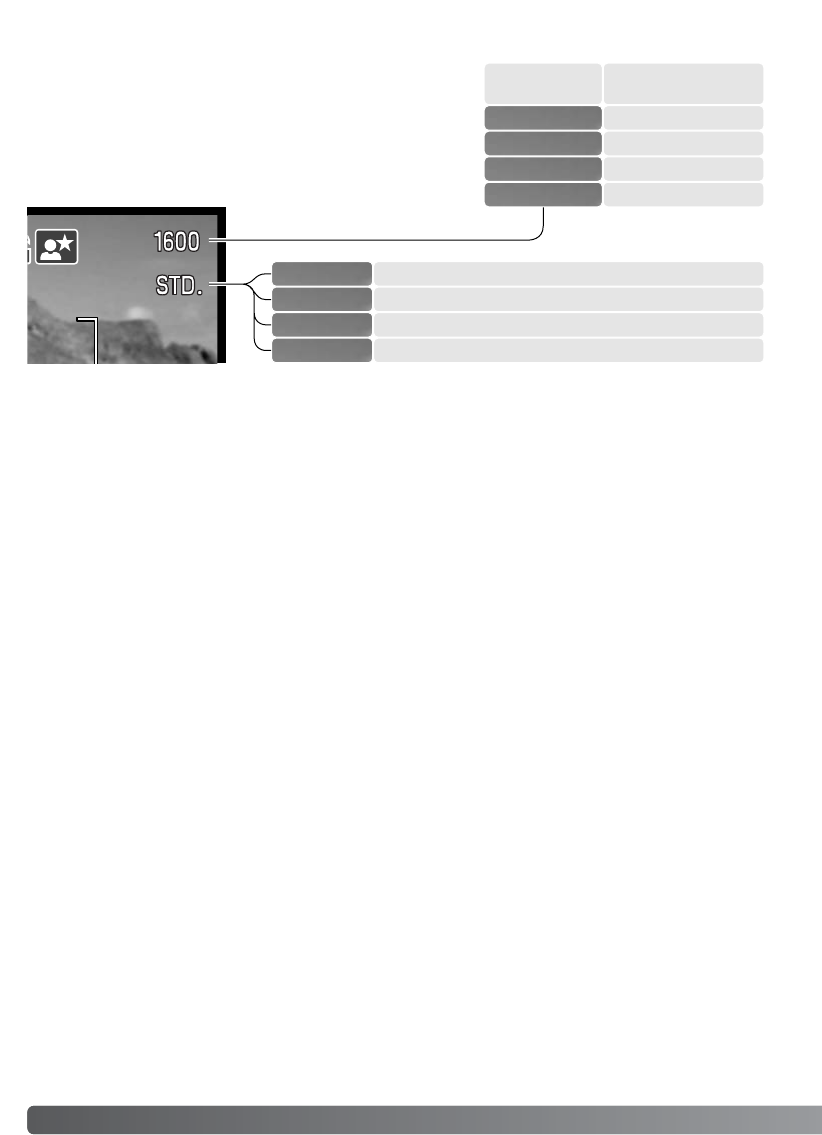
Changing image size affects the number of pixels in each
image. The greater the image size, the larger the file size.
Choose image size based on the final use of the image -
smaller images will be more suitable for web sites whereas
larger sizes will produce higher quality prints.
46
A
UTO-RECORDING MODE - ADVANCED OPERATION
LCD monitor
2272
1600
1280
640
Number of pixels
(hor. X vert.)
2272 X 1764
1600 X 1200
1280 X 960
640 X 480
Image size and image quality
Image quality controls the rate of compression, but has no effect on the number of pixels in the
image. The higher the image quality, the lower the rate of compression and the larger the file sizes. If
economical use of the memory card is important, use the economy mode. Standard image quality is
sufficient for normal usage. The TIFF mode will produce the highest quality image and the largest
image files. A status bar is displayed when large images are saved.
File formats vary with the image quality setting. TIFF images are saved as a TIFF file. The fine, stan-
dard, and economy settings are formatted as a JPEG file. TIFF, fine, standard, and economy files can
be recorded as color or monochrome images (p. 70) in the multi-function recording mode.
Image size and quality must be set before the picture is taken. Changes are displayed on the LCD
monitor. Image size and quality must be reset manually. See navigating the auto-recording mode
menu section on page 44. In multi-function recording mode, image size and quality are controlled in
the basic section of the multi-function recording menu (p. 56).
Economy - the smallest file sizes. (JPEG)
A high-quality TIFF image.
Fine - high-quality JPEG image.
Standard - the default setting. (JPEG)
ECON.
FINE
STD.
TIFF


















